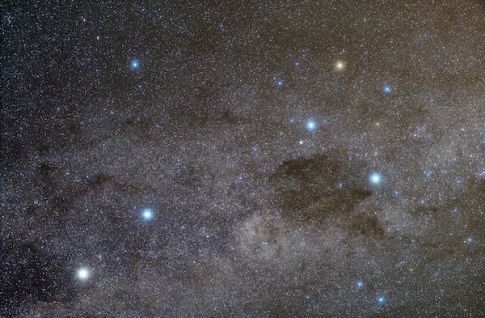
NASA/Beletsky
Believe it or not, it's a decade since FQXi launched, back in May 2006. There'll be more celebrations on the site to come, but to commemorate our birthday month, we invited one of FQXi's directors, Anthony Aguirre, on to the latest edition of the podcast. He talks about why the institute was launched, its ups and downs, and one of his favourite research projects funded by FQXi. I'd be interested to know in the comments if you agree with his choice...
In the news round-up, Brendan and I chat through the launch of the first quantum science satellite, scheduled for July, in China. The project is led by FQXi member Pan Jian-wei. We also discuss Kepler's announcement of the discovery of over a thousand new exoplanets, and Breakthrough Starshot -- a mission to send tiny spacecraft to Alpha Centauri. (The latter is funded by Russian billionaire, Yuri Milner, who received some criticism over the feasibility of the project. I interviewed Milner for Science about these issues, and you can read that Q&A here.) Aguirre discusses some of these news items with us, along with the question of who should be responsible for funding the bulk of foundational research: the government, charitable foundations, or individuals?
Catalina Oana Curceanu, a quantum physicist at National Institute of Nuclear Physics, in Frascati, Italy, talks about her team's experiments to test collapse models -- rivals to standard quantum theory that explain why large objects don't retain quantum properties, that is, why we never really see cats that are both alive and dead at the same time -- with reporter Carinne Piekema. You can also read Curceanu's Q&A, by Carinne.
And finally, cosmologist Sean Carroll explains his research on how space and time emerge from quantum theory, and talks about his latest book, The Big Picture, to reporter Sophie Hebden. If you like the sound of Carroll's research, don't worry, there will be a more detailed article by Sophie, on the site, soon.